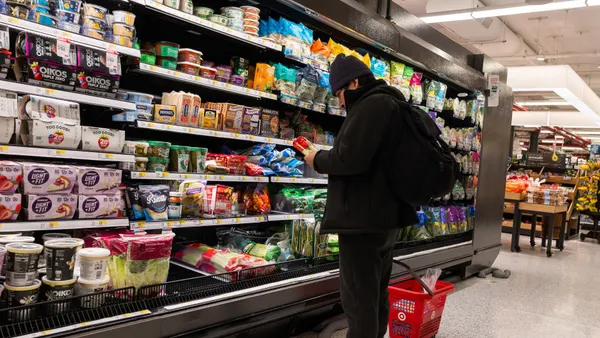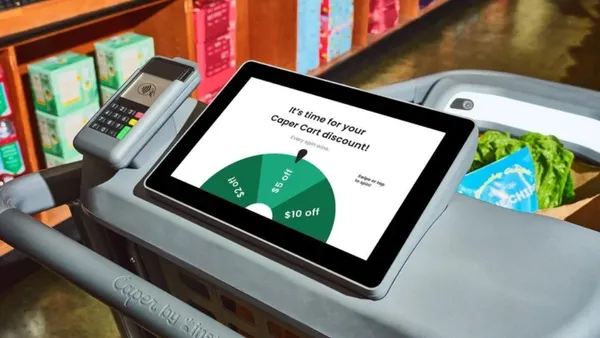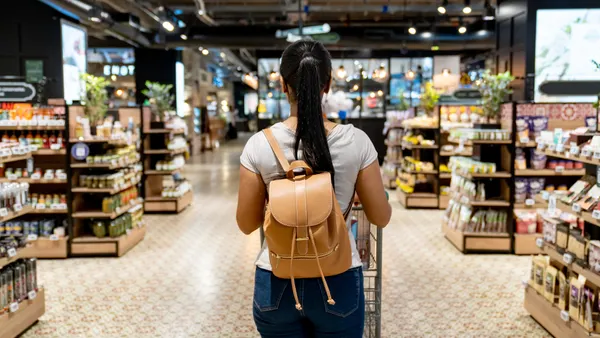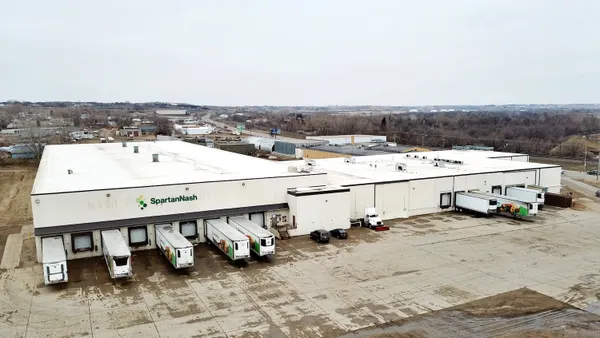Dive Brief:
- Kroger has officially launched its driverless grocery delivery service in Houston in partnership with robotics company Nuro, according to a company press release. Houston is the second market to pilot the service following a successful trial in Scottsdale, Arizona.
- Driverless delivery will be available from Kroger's South Post Oak store to start and from its Buffalo Speedway store later this spring. The Houston Business Journal reported that Kroger has identified 12 to 14 other stores where the service might be added, but which have not yet been named.
- The service will begin with Nuro's manual and self-driving Toyota Prius fleet, and Kroger will introduce Nuro's custom driverless delivery vehicles later in the year. Same-day and next-day deliveries cost $5.95 with no minimum order required, and customers must pick up the groceries from the vehicle curbside.
Dive Insight:
After making more than 1,000 deliveries during its pilot in Scottsdale with Fry’s Food Store last year, Kroger ended the program and moved testing to Houston last month. Following its soft launch in the city, customers in two zip codes can now officially try out Kroger's driverless delivery, with two more zip codes to follow later this Spring.
Houston the fourth largest city in the U.S., and the city’s autonomous-vehicle friendly streets and regulations, as well as its climate and geography, make it an attractive location for the retailer to further test this technology.
Kroger has a large market share in the heavily populated city with 102 stores, and its newest technology — which was a hit in Scottsdale, according to the grocer and Nuro officials — could help it battle against Texan favorite H-E-B, retail juggernaut Walmart and Whole Foods as it expands with Amazon. Walmart is also testing driverless delivery projects in partnership with Udelv, Ford and Waymo.
One aspect of driverless delivery that has consumers wary is the inconvenience of not having orders delivered to their doorsteps. This could be a problem for specific customer sets, including those with disabilities and others who are unable to be home during delivery hours.
Safety is also an issue, with more than half of consumers saying they don’t trust self-driving cars partially because of safety concerns, according to a study. Kroger will mitigate this by manning the vehicles at first. Although the cars will be self-driving, they will have one co-pilot to monitor the technology inside the vehicles, while another remote observer watches the cars’ performance on the road, according to the Houston Business Journal. The unmanned vehicles will roll out later this year.
About 50% of the largest American cities are preparing for the arrival of self-driving cars, according to one report — up from 10% three years ago. As consumers warm up to the idea, Kroger and other retailers have the opportunity to work through the friction and refine the experience.













